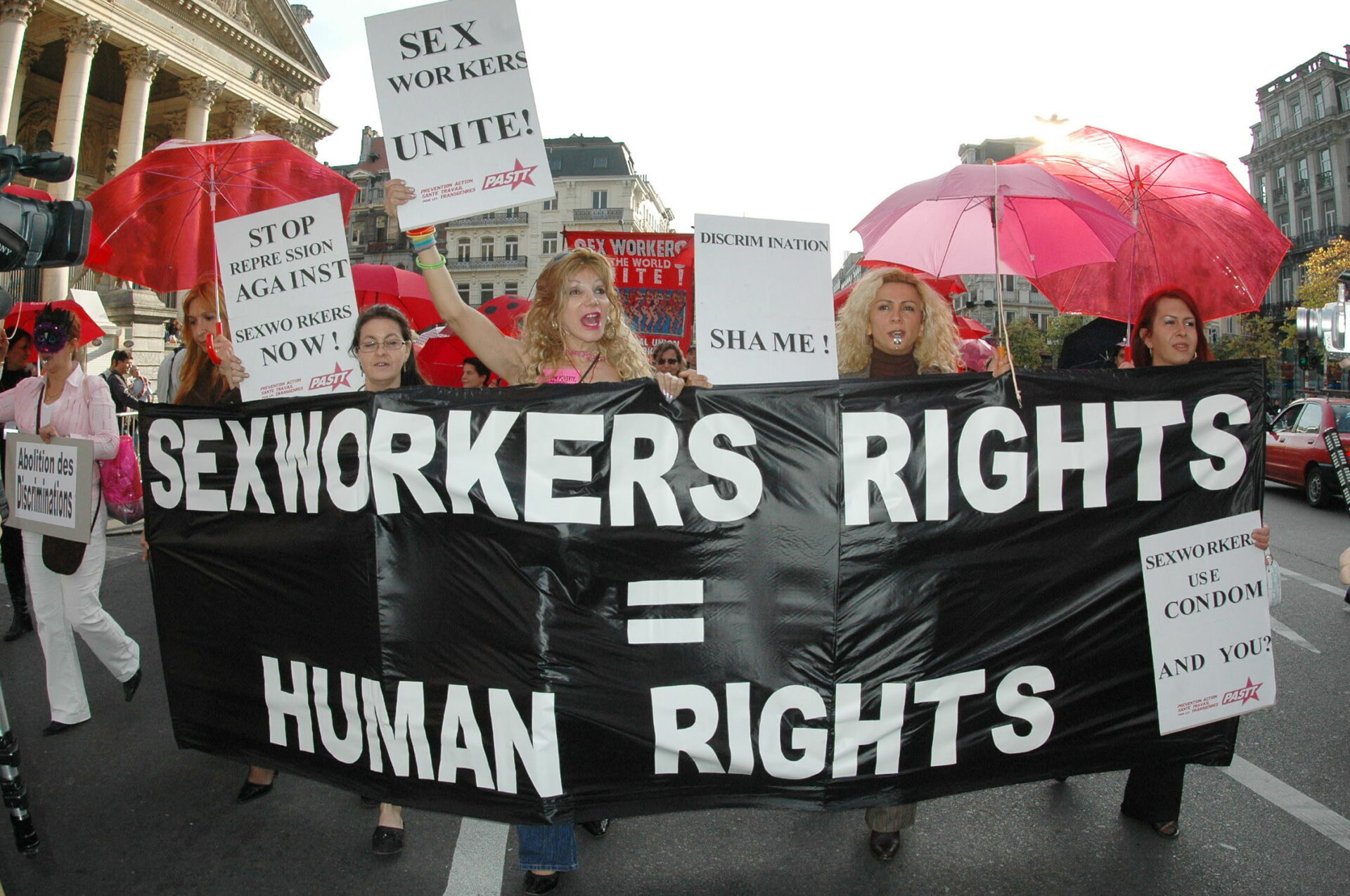Sex workers across Europe are "raging and mobilising" after a long-awaited ruling by the European Court of Human Rights (ECHR), which criminalises people who buy sexual acts in France – a decision which prostitution abolition activists welcomed.
A group of sex workers argued in 2019 that the French law penalising the purchase of sexual acts endangered their physical and psychological integrity and health and threatened their right to privacy, as well as that of their clients. However, the ECHR has now rejected all of these complaints, leaving sex workers "deeply disappointed."
"This law denies sex workers the right to pursue a professional activity, personal autonomy, and sexual freedom," Wszebor Sienkiewicz, communications officer at the European Sex Workers' Rights Alliance (ESWA), told The Brussels Times. "The court has left sex workers behind."
While the judges did not find that the French law explicitly violates the right to respect for private life (Article 8 of the European Convention on Human Rights), the court was fully aware of the "undeniable" difficulties and risks to which sex workers are exposed.
Conflicting views
Sienkiewicz stressed that while this case, 'MA and others vs. France,' focused on France, it was part of sex workers' "universal movement advocating for freedom of choice, bodily autonomy, safety, and access to justice."
"Recourse to the general and absolute criminalisation of the purchase of sexual acts as a means of combatting human trafficking is currently the subject of heated debate, giving rise to wide differences of opinion at both European and international level, without a clear position emerging," the judgement said.
Additionally, the ECHR said that the problems linked to prostitution raise "very sensitive moral and ethical questions," resulting in different and often conflicting views. The Court added that there is still no general consensus on how best to approach prostitution among EU Member States, or even within the various international organisations examining the issue.

Sex workers from across Europe demonstrating for their right to work in Brussels. Credit: Belga / Jacques Collet
ESWA Director Sabrina Sanchez believe that the judges have "stained their hands with the blood of over 30 sex workers who have died" since 2016 (the year in which the French law was implemented), "making our work much more dangerous and criminalised."
Sanchez underlined that the persistent association between exploitation, violence against women and sex work is very damaging to the health and safety of those affected. "Countries that criminalise customers under the pretext of combating sexual exploitation are in fact fighting sex work, regardless of the conditions under which it is carried out."
Related News
On the other side of the spectrum, the grassroots organisations that are members of the Coalition for the Abolition of Prostitution (CAP International) welcomed the ECHR ruling and considered it a "victory for all women" and a "strong signal for Europe."
"The abolitionist model guarantees the best protection for all people in prostitution and provides access to their basic rights," CAP International said. The Coalition believes that the 2016 French law forms a coherent whole by providing support for people in prostitution (such as exit routes and protection measures), raising awareness among young people and tackling pimping and demand.
"Only by recognising prostitution as a form of violence can we provide effective support for people in prostitution. What prevents them from accessing their rights is not the law, but rather the lack of enforcement," CAP argued, adding that the 2016 law should be enforced more effectively throughout France.
'Patriarchal control of women's sexuality'
At a press conference after the ECHR ruling, UN Special Rapporteur on the Right to Health Dr. Tlaleng Mofokeng said that she was disappointed by the Court's decision. "It is specifically the patriarchal control of women's sexuality – particularly concerning sex workers – that creates space for people to think that autonomy can be outside the person, so the State can try to control and regulate it."
Mofokeng emphasised that it was important to remember that the entire spectrum of human rights applies to everyone, including sex workers. "Sex workers do not have to act in any particular way to earn their human rights. They already have their human rights."

